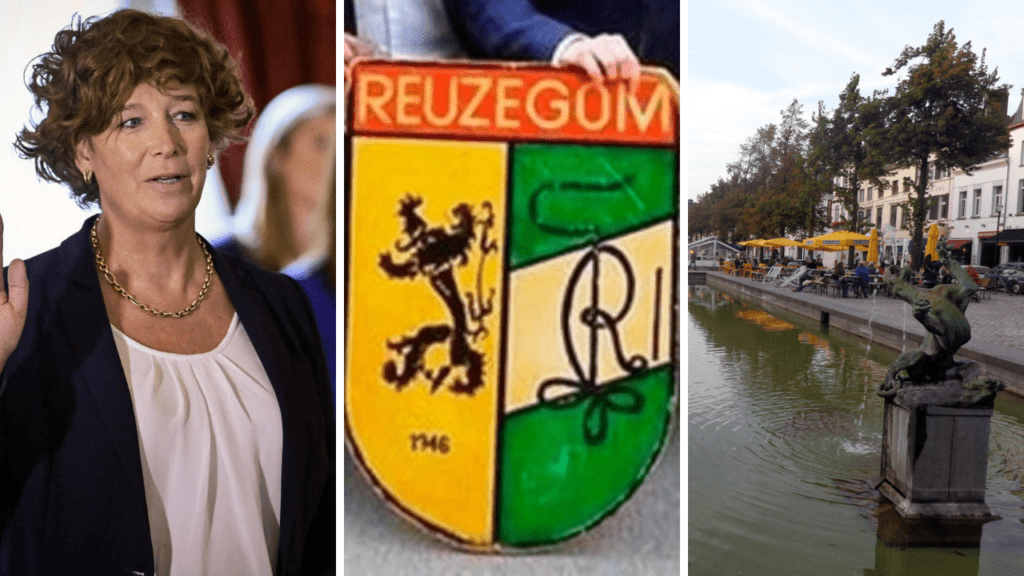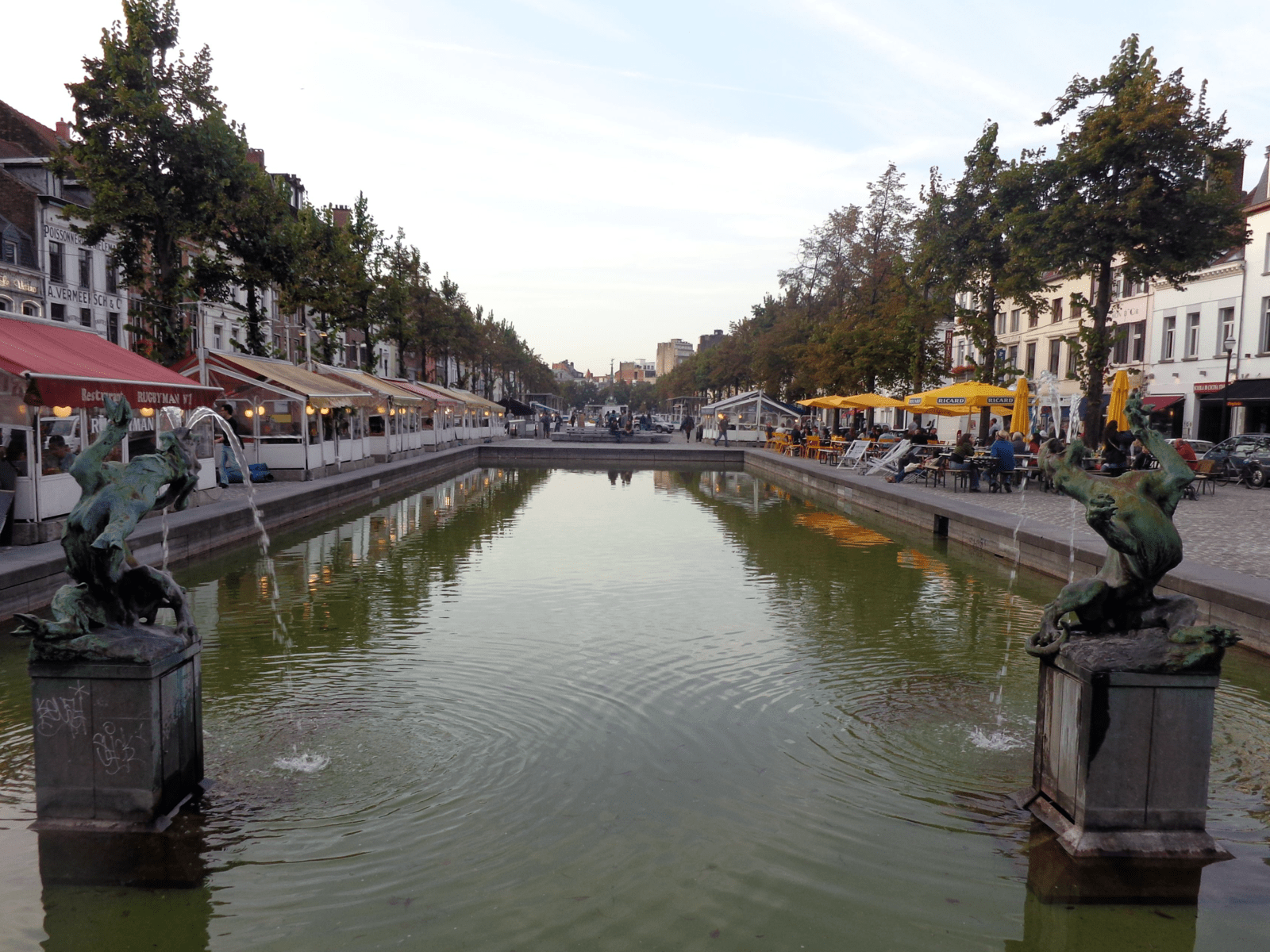An ongoing story in recent months - the death of Belgian student Sanda Dia in 2018 after a hazing by the now-disbanded Flemish student club Reuzegom - has made it back into the news following international press coverage and updates on the local side.
In Belgium, additional investigation will soon be carried out into the case. Several lawyers who are defending members of Reuzegom, as well as the lawyer of animal rights organisation Gaia, have been granted their requests for additional investigation, the public prosecutor’s office in Limburg confirmed to VRT.
Across the Atlantic, the story made it into The New York Times on Sunday 4 October, resulting in a flurry of (social) media attention abroad and renewed interest in Belgium, after the news was buried under recent reports of surging coronavirus cases and the formation of a new federal government.
On Twitter, the article, which paints Dia’s death against Belgium’s colonial history and the recent anti-immigrant populism, is causing many people to draw attention to the case again, demanding #JusticeForSandaDia.
Dia, who was a 20-year-old civil engineering student at the University of Leuven, died of hypothermia and multiple organ failure during an initiation to join student club Reuzegom, after drinking large amounts of alcohol and fish oil, being urinated on and standing in a cold pool of water in December for an extended period of time.
A total of 18 members of the student club are suspected of administering harmful substances resulting in death, unintentional manslaughter, degrading treatment and refusal of assistance due to guilty negligence. Read more here.
In other news, Belgium's figures paint a grim picture, and Brussels' figures continue to outpace the rest of the country.
Belgium in Brief is a free daily roundup of the top stories to get you through your lunch break conversations. To receive it straight to your inbox every day, sign up below:
1. Belgium's recent Covid-19 case numbers included many who were not contagious
Many people in Belgium who tested positive for coronavirus this summer were no longer contagious, Belgian daily Het Laatste Nieuws reports on Monday.
It was proven that they were still carrying traces of a previous infection, according to the daily. However, they are still registered as new cases and still trigger a coronavirus alert. Read more.
2. ‘Non-issue’: Belgium’s Petra De Sutter is first openly transgender minister in Europe
As Belgium put its new federal government in place this week, Petra De Sutter, an openly transgender woman, was appointed as Deputy Prime Minister – something that went almost unremarked upon by Belgian media.
De Sutter, a former MEP, was appointed as Deputy Prime Minister for Groen (Flemish green party) as well as Minister for Public Enterprises and Public Administration in the new De Croo government. Read more.
3. Coronavirus: Belgium’s four worst-hit municipalities are in Brussels
The four Belgian municipalities seeing the fastest rise in new coronavirus infections are within the Brussels Region, according to the latest figures from Sciensano on Monday morning.
Between 25 September and 1 October, Belgium saw an average of 2,103.3 new infections per day, 32% more than in the previous 7-day period. In Brussels, the average is increasing by 37%, with 465.6 infections recorded in the capital alone within the same time period.
Molenbeek-Saint-Jean is currently the worst hit, with 744 new cases per 100,000 inhabitants in the last 14 days. Read more.
4. Brussels bans public drinking in city centre
Drinking alcohol on the streets is now against the law in a large section of the Brussels city centre, according to new rules which came into effect on Monday.
The rule – which comes after complaints from local residents – means that it is now forbidden to drink alcohol in many public spaces for the next year. This follows on from a ban on drinking in the pedestrian zone between midnight and 6:00 AM from February, which saw offenders face a fine of €350. Read more.
5. Belgian average surges to over 2,100 daily coronavirus cases
More than 2,100 new people per day tested positive for the virus in Belgium over the past week, according to Monday’s figures by Sciensano, which even registered a peak of over 3,000 new cases on Wednesday.
Over the 7-day period from 25 September to 1 October, an average of 2,103.3 new people tested positive, which is an increase of 32%, meaning the number of new infections is rising rapidly again. Read more.
6. Coronavirus barometer will not be launched before it is ‘perfect,’ says PM
Belgium's coronavirus barometer – which was announced at the last National Security Council – will not be launched before it is perfect, according to new Prime Minister Alexander De Croo.
“The first thing I am going to do is sit down with Health Minister Frank Vandenbroucke,” De Croo told VTM News, who assumed his position as Belgium’s PM just as the country is seeing a new rise in coronavirus cases.
“Too often, in the past, things have been announced that were not clear. I want to avoid that,” De Croo said, adding that the announced barometer will not be launched before it is “perfect.” Read more.
7. Most of Belgium’s new Covid-19 cases come from Brussels and Wallonia
As Belgium is recording a rapid rise of new coronavirus cases across the country, most of those new infections come from the Brussels-Capital Region and Walloon provinces, according to recent figures.
A rise in the number of new cases is noticeable in all provinces in Belgium, but the increase is greatest in the Walloon provinces at the moment, health officials said during a press conference on Monday. Read more.
Jules Johnston
The Brussels Times



